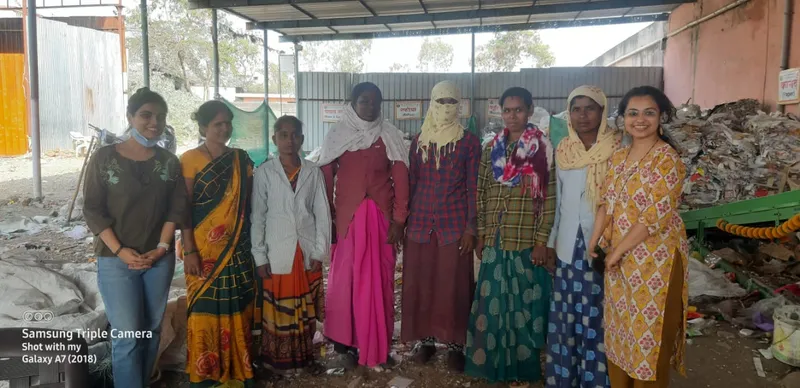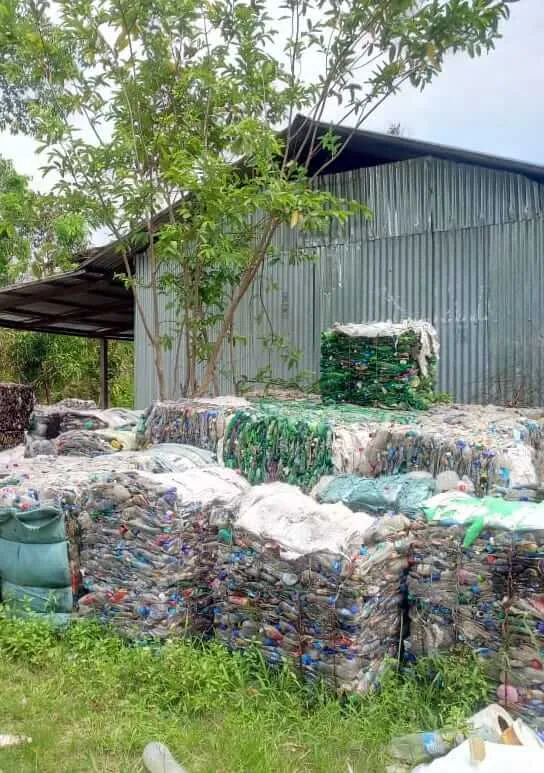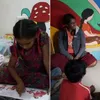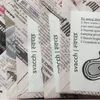How Recykal Foundation is empowering India’s safai mitras
Hyderabad-based Reckyal Foundation has come up with initiatives like Unnati Setu, which aim to improve the lives of one million waste pickers by 2025.
According to the Solid Waste Management Rules, 2016, Rule 3 (1) 58, under the Ministry of Environment, Forest and Climate Change, waste pickers are “people or group of persons informally engaged in the collection and recovery of reusable and recyclable solid waste from the source of waste generation--the streets, bins, material recovery facilities, and processing and waste disposal facilities, for sale to recyclers directly or through intermediaries to earn their livelihood” [sic].
Official figures put their numbers at 1.5 million, which is believed to be 10 percent of the number of people working as waste pickers across the globe. Despite this sizeable population and the crucial role they play in keeping our cities clean, waste pickers live on the periphery of the society, ostracised for being “unclean”, and barely making enough money to make ends meet.
Still considered part of the informal economy, the country’s waste management system is also fragmented and unorganised with waste pickers, processors, and sanitation workers at the bottom of the value chain. These safai mitras are paid sub-minimum wages and live in slums. Many find it difficult to provide a single meal a day for their families.

The majority of safai mitras are women but they are paid far less than their male counterparts and work in extremely hazardous conditions
“Over 70 percent of safai mitras are women, and there is a lot of mental and physical exploitation that makes it an unsafe working environment for women. Women are paid far less than their male counterparts. Child labour is prevalent, with young kids working in hazardous conditions causing severe health ailments. The lack of societal acceptance has left these people stuck in a vicious cycle,” says Viiveck Verma, Chief Impact Officer of (Recykal), which is working to transform this sector.
In May this year, the Foundation announced its plans to reach one million safai mitras by 2025 through the Unnati Setu (Social & Economic Transformative Upliftment) initiative. Recykal was founded in June 2021 and is headquartered at Hyderabad.
Initiated in January 2022, Unnati Setu is currently supporting 4,000 safai mitras in Gudimalkapur, Hyderabad.
“Our studies showed that malnourishment among children and women was very common as micronutrients are unavailable to the community. We decided to initiate a daily meal drive to engage with them. The drive has proved a success and we completed 100 days in May. We are now looking to start regular health camps as the community is highly prone to health ailments because of the conditions they work in,” says Viiveck. Recykal is also initiating an education programme involving the youth and small children in the community.
Lives and livelihoods
Recykal is adopting a four-pronged approach to increase the earning potential of the safai mitras:
● Enabling a circular economy: Change begins at the source and people will be encouraged to practice more responsible disposal of their household and other waste facilitated by proper infrastructure and policy advisory.
● Recognition and inclusion: More social acceptance of safai mitras through two-fold support will improve financial conditions, which in turn could increase social inclusion.
● Equal opportunities: Create more access to better learning and working opportunities.
● Conscious gen-next: increase awareness by connecting with the youth in the community, and imparting skillsets for better opportunities. The Foundation is also working with schools to teach children waste management and the importance of respecting safai mitras young.
“Our philosophy is to grow the ecosystem as this is an activity that needs as many minds and hands as we can engage. Hence, one of the key pillars is to work collaboratively with people and organisations as we feel the problem is so large and deep that it needs a larger team,” says Viiveck.

Recykal is reaching out to the government to expand its Swachhta Kendra network.
Recykal is collaborating with several verticals from government agencies that create policies and implement them at scale to local partners that have a strong community connect and solution providers, especially startups.
“For the outreach, we followed a mixed approach and identified people from the community/surrounding who are working with social bodies. That's how we partnered with Hyderabad-based NGO Sani Foundation to carry out the initial meal distribution plan,” says Viiveck, adding that collaboration was key to increasing reach and maximising impact.
“Our attempt here is to grow the ecosystem as a whole and make sure the local connection is enhanced as we play the role of strategists and enablers,” he adds.
Recykal will also focus on engaging with the stakeholders and identifying individuals who are keen on finding solutions to the problems shared by their community. “The idea is to grow from just-food security to other needs like medical camps, education classes, and identity and inclusion activities,” he says.
A key concern is the complete lack of labour laws and safety measures. “Given the informal nature of work, the workers lack the privilege to seek legal remedy,” says Viiveck.
A comprehensive approach
To help create a more secure future for safai mitras, Recykal is also conducting education and health camps for them and creating awareness on the importance of cleanliness by distributing safety gear for the hazardous conditions they work in.
“We have been helping them get government IDs and universal banking access to enable them to apply for loans and redeem various government subsidies,” says Viiveck.
To complete the circle, Recykal is reaching out to the government to expand its Swachhta Kendra network. “These are centres for waste material collection and channelisation. “In addition to collecting material for recycling, they employ safai mitras offering organised, regulated working conditions with a safe source of income, he adds.
Recykal has connected with more than 100 urban local bodies, over 100 brands, more than 400,000 consumers, 500 waste aggregators, and 150 recyclers and coprocessors. It is working across 27 states and over 100 schools across the country to raise awareness.
“The lack of awareness regarding waste management and the role of safai mitras leads to people stereotyping and discrimination. The informal nature of work also prevents them from seeking appropriate support from the government or employer. We aim to work towards removing this stigma by enhancing their livelihood through a two-way approach of awareness to people with a defined 'call to action'. We are also working to curate self-sustaining initiatives that can be led by the community in the long run,” he says, explaining that the Unnati SETU initiative will be extended in Gudimalkapur and other areas in Hyderabad.
“The most critical requirement for the upliftment of this community is the need to listen to them carefully and see them as stakeholders in the process. This is where it needs to start so other things can start falling in place,” he says, adding that the nomenclature itself needs to change from words like rag pickers, waste collectors, waste pickers, etc., to safai mitra.
“It is ironic to associate them with waste when we are the ones creating the waste and the
community is actually the face of cleanliness. Spend a few minutes with the people who keep our households or offices clean as that’s where we believe the change will begin,” says Viiveck.
Edited by Megha Reddy








